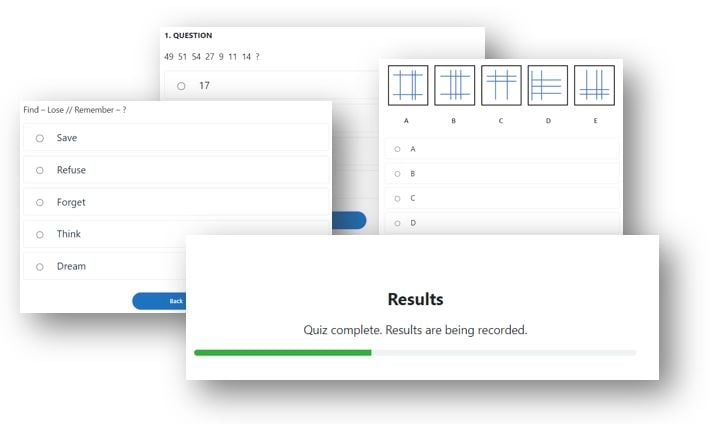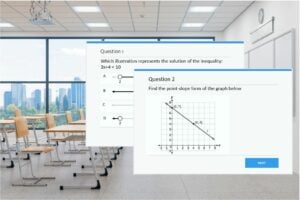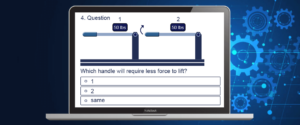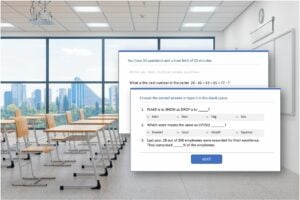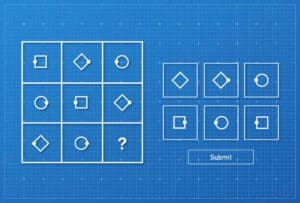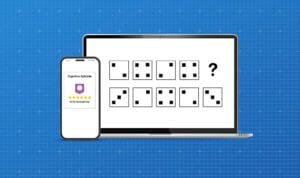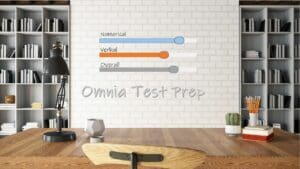Hi there,
Were you invited to take a Harver cognitive ability assessment? You’ve come to the right place!
1. Review the assessment’s content with sample questions.
2. Take a free Harver practice test.
3. Enrol in a prep course.
4. Get answers to all your questions from our team of experts.
Harver's Cognitive Assessment Review
Harver’s Cognitive Ability Assessment is made of 8 subtests which are used to measure a broad spectrum of cognitive abilities and to produce a holistic understanding of your general intelligence and potential.
The subtests can take anywhere from 5 to 15 minutes. Since some skills are more important than others for different jobs, you will not be asked to take all 8 subtests.
Logical Reasoning
This subtest measures your ability to recognize and interpret patterns and details in figures and shapes. You will be presented with five images and you will have to find which image is the odd one out.

Number Patterns
This subtest measures your ability to recognize and interpret patterns in number series. You will have to figure what is the next/missing item in the series.


Speed & Accuracy
Questions in this section require you to quickly learn, memorize, and process information. It also measures how well you can work under pressure. You will be presented with sequences of letters and numbers and you’ll have to quickly identify whether the sequences are identical or not.

Spatial Reasoning
In this subtest you will have to rotate and assemble shapes together, as seen on the left.
Take a Free Harver Practice Test
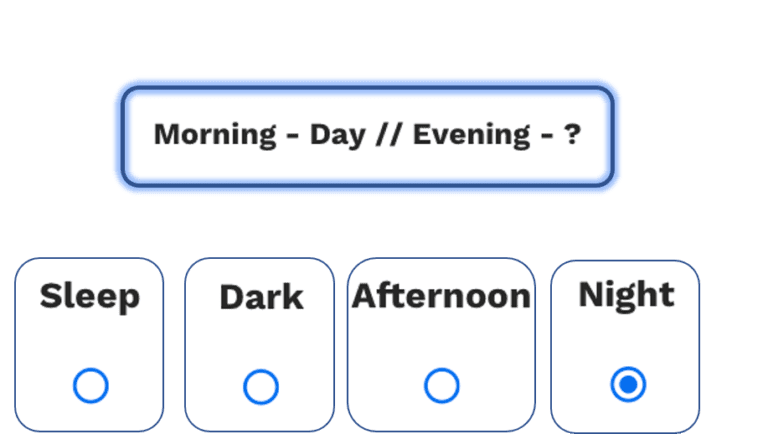
Verbal Reasoning
This subtest measures your ability to identify relationships between pairs of words and then to apply the same relationship on a new pair of words.
Abstract Reasoning
This subtest measures your ability to solve 3×3 matrices and other series of shapes. You will have to follow the objects and observe how they change througout the row/column and then decide on the missing frame.
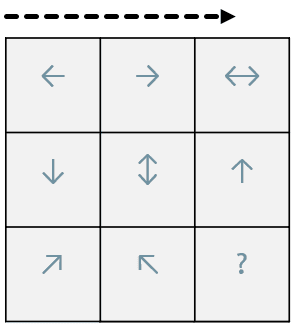
Numerical Reasoning
This subtest measures your ability to solve 3×3 matrices and other series of shapes.
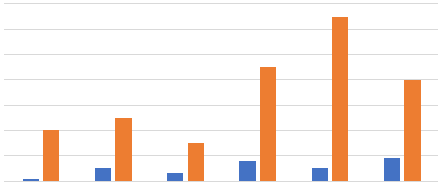
Reading Comprehension
This subtest will ask you to read passages and answer multiple choice questions.
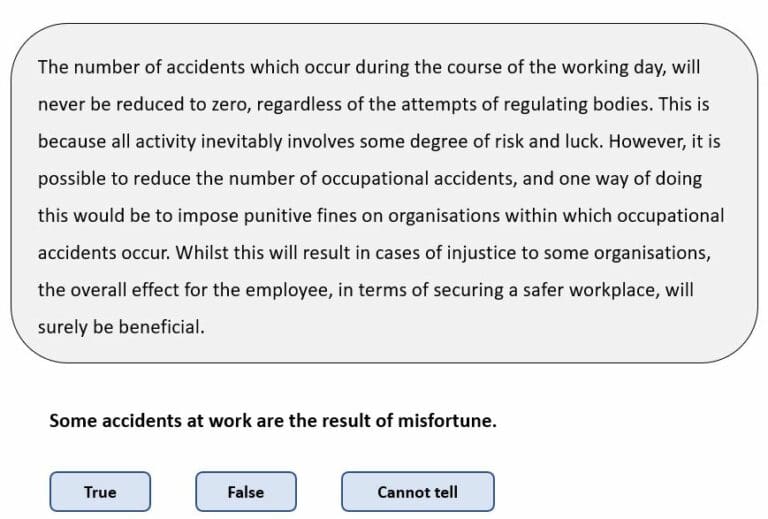
Take a Free Harver Practice Test
Answering Frequently Asked Questions
On the Harver website, we found this:
“Scores are calculated based on norm references where 50% is an average score and most people score between 30% and 70%.”
(Source)
From this we can infer that any score above 70% is considered above average.
Good question!
- Firstly, it is very important to prepare in advance. This can make a huge difference to your candidate profile.
- Secondly, you have to find exactly what subtests you are required to take. There’s no point in preparing for all 8 subtests of the Harver cognitive assessment, since no employer will be using the whole suite.
- Lastly, check out the free practice test we offer above ↑. Lastly, we will soon offer a prep course for the Harver cognitive assessment, more details coming soon…!
Harver doesn’t provide a practice test per se. You will, however, be given a chance to try a few practice questions before the assessment starts. You should check these two link on the Harver website:
Disclaimer
12minprep.com is not owned by, nor is it affiliated with Harver. This website solely provides information and resources for cognitive ability tests.


